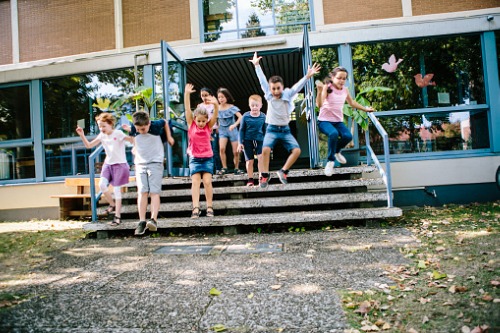
By all accounts, 2019 has been an emotive year in our education landscape. Australia has been alive with disdain for apparent stagnant literacy and numeracy results.
In the public’s obsession, barely a week transpires without critics asserting their opinion about NAPLAN, teacher training, phonics, mobile phone bans, student suspensions, or school starting age; all claiming to be in the name of improving student achievement. Tuesday’s realisation of Australia’s standing in the 2018 PISA report opens the debate once again, with words such as ’plummeting’ and ‘disheartening’ dominating reports.
Australia is not alone. UK media outlets report ‘More than one in four children falling behind by age five’ and in the US it’s been asserted that scores are not improving despite ‘stronger academic standards, more tests, stricter teacher evaluations and laws that discourage schools from promoting third graders if they can't read proficiently’. US Education Secretary Betsy DeVos has labelled the current situation a ‘student achievement crisis.’
Educator and researcher, Linda Darling-Hammond, gifted the US with the statement, ‘If all that testing had been improving us, we would have been the highest-achieving nation in the world.’
If there is someone to blame for the ‘student achievement crisis’, we should not be looking to parents, teachers, schools or the children themselves. Education policy is the culprit. Education policy is failing our children.
The Australian, UK and US education systems thrust academic demands on children from a young age. In our hunger for unmatched intelligence and the quest to give children the best start in life, these systems have bought into the belief that, if formal curriculum from age seven will bring about quality outcomes, then starting at age five – or perhaps even three – will surely result in even greater outcomes.
Study after study reveals that, while imposing academic demands on young children may result in competitive gains in the short term, it does not put these children on a faster or stronger trajectory in the long term. In fact, in terms of future academic performance and career success, children who experience an extended play-based childhood will typically overtake their peers who engaged with formal curriculum from a young age.
While theories about right and left brain dominance have been debunked, evidence exists that blood flow is greater to the right brain hemisphere in the early years. The right brain is most creative. It specialises in such things as imagination, emotion, intuition, attentiveness and personal identity. The left brain hemisphere specialises in the more analytical brain functions such as language and numeracy. Typically, it is not until age seven that the left brain has capacity to equitably partner alongside the right brain.
The Australian, UK and US education systems have lost perspective. They’ve evolved into cluttered packages that prioritise instant gratification over long term reward. They impose academic demands on children before the brain is formed in a way to accommodate such learning. When young children should be sitting to take a break from running, our education systems tell children to run to take a break from sitting. Culturally, children are expected to exercise their left brain during the right brain’s dominant years. Society finds herself perplexed and frustrated in subsequent years as children feverishly play catch-up to develop right brain skills during the reign of the left brain. It’s unnatural. It’s exhausting. Extremists might label it catastrophic child abuse.
Finnish children do not engage in formal curriculum until age seven. In the early years, Finnish children develop skills that serve as a strong foundation for a lifetime of learning such as self-regulation, tenacity, resilience, creativity, collaboration and attentiveness. How? Through play. With time, space and freedom, Finnish children try new things, take risks, fall over and pick themselves up. They engage in exploration sans adult intervention and they figure things out for themselves. They grow in independence and discover their abilities and limitations. Standardised testing is not imposed on Finnish children. Finland’s academic results – as well as the fact that the nation has once again been named the world’s happiest country – are evidence that this country is serving its future generations well.
A study released last year by the American Academy of Paediatrics states, ‘Play is not frivolous: it enhances brain structure and function and promotes executive function, which allows us to pursue goals and ignore distractions. When play … [is] missing in a child’s life, toxic stress can disrupt the development of executive function and the learning of prosocial behavior.’
Despite a seemingly endless list of research that links anxiety, depression and poor fundamental learning characteristics with a lack of authentic free play, educational policy abandons play, dismissing it as a nonsensical waste of time. In our desire to set our children upon the path of success, we have robbed them of the most effective development strategy: play.
Recalibration is not insurmountable, but it does require a change in mindset. The acknowledgement that tests don’t teach is a start. Young children must be given every opportunity to engage in audacious play: unstructured play, outdoor play, barefoot play, risky play, rough and tumble play, belly-laughing play, imaginative play, exploratory play, independent play and cooperative play. Schools and parents must release themselves from the intense pressure they feel to always be ‘on’ and ‘intentional’ and ‘structured’ and ‘outcomes driven’, resting in the knowledge that recreation is not only beneficial, it’s an essential independence-building, connection-growing, critical-thinking and life-giving tool. We must take a leaf out of the Finns’ book and thrive in the restoration of childhood and the joy of play.
Recognising that play is an essential element of learning has the capacity to positively impact the intelligence and maturity of nations as we support brain development in line with its natural evolution.
Jane Mueller is the principal of Living Faith Lutheran Primary School in Brisbane. Connect with her on Twitter: @jane_n_mueller


